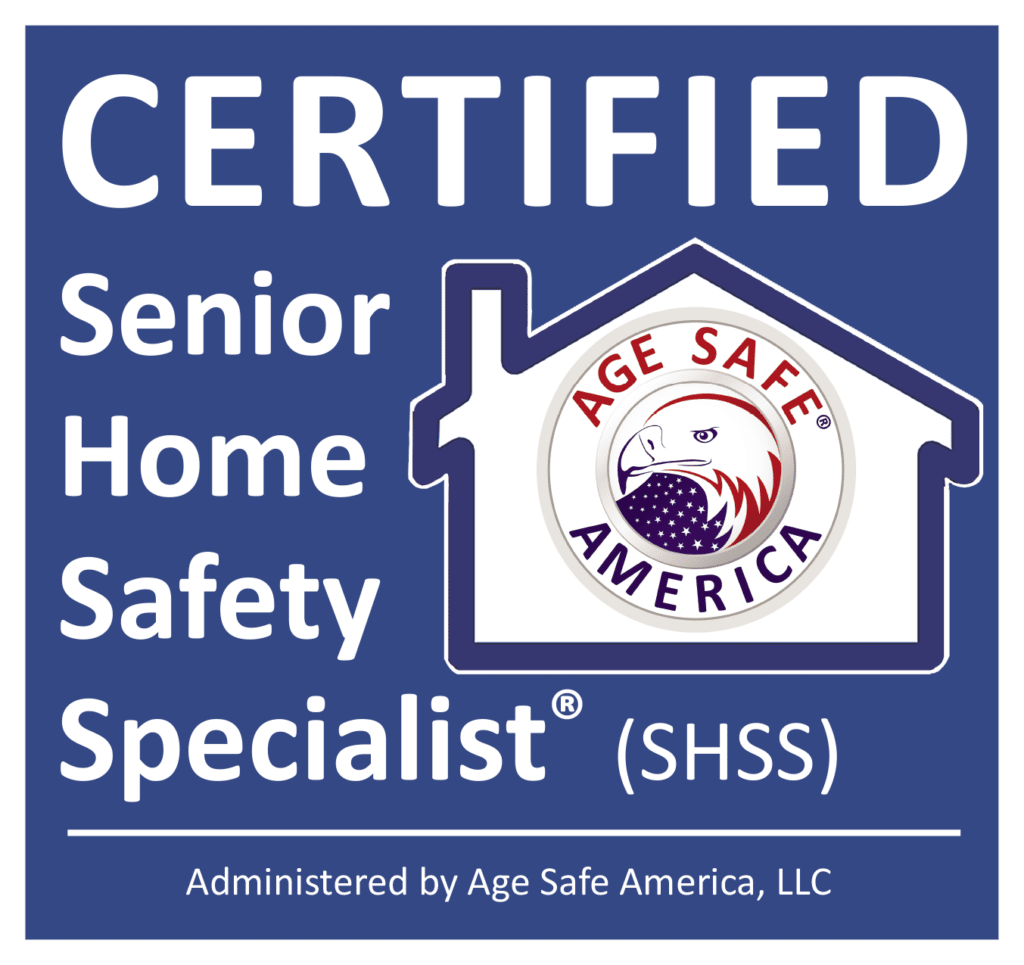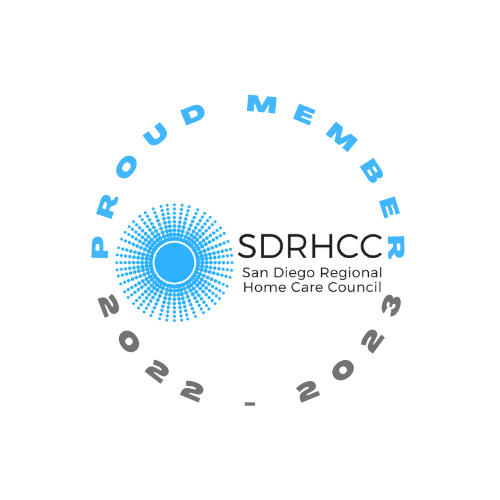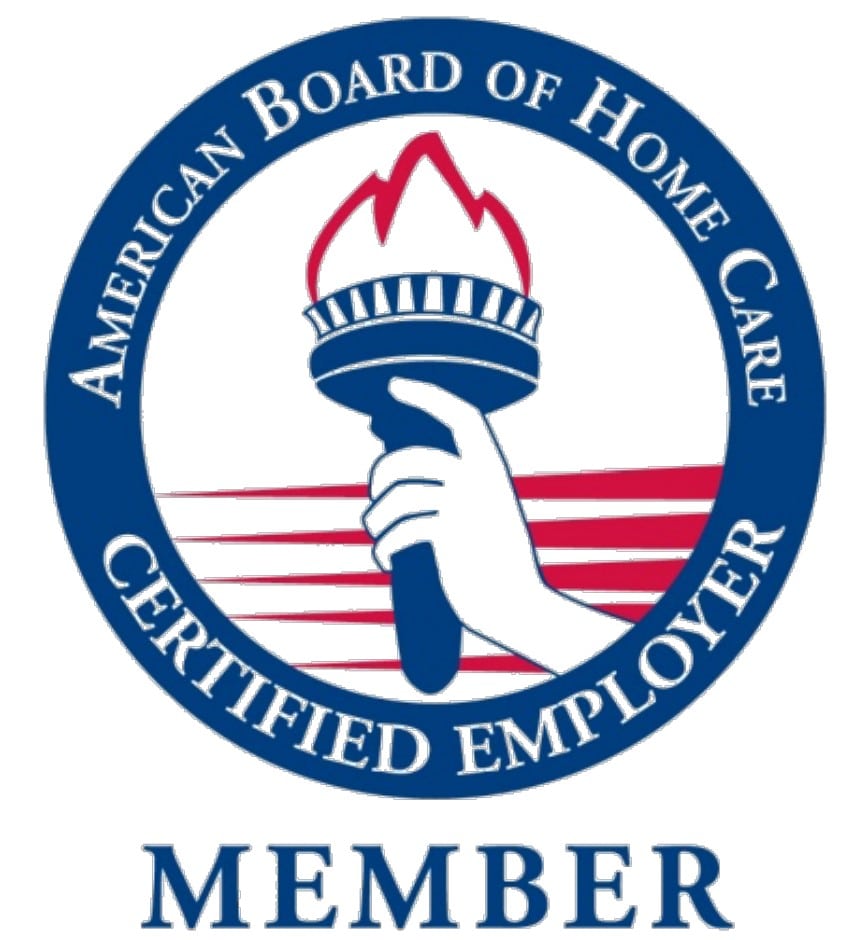After his stroke, one thing isn’t returning. Your dad lost his eyesight. This isn’t uncommon. About 65% of stroke patients lose some or all of their vision, and it doesn’t always return. If some vision is restored, it happens slowly.
When your dad’s vision is gone, there are several things he’s going to need. One of those is to have someone with him throughout the day and night.
Why Does Vision Loss Occur?
When a stroke occurs, it’s the result of a blockage of blood flow that damages the brain. Therefore, as the brain works with your eyes, the damage to the brain will impact vision.
The area around the occipital lobe controls vision processing. While the area around the brainstem helps with object recognition and eye movements. The area of the brain affected by the stroke plays a role in what type of vision loss occurs.
- Dry eyes – Inadequate tear production to properly lubricate the eyes
- Eye movement disorders – Nerves and muscles no longer move correctly
- Homonymous hemianopia – Loss of half the central field of vision in the left or right eye
- Homonymous quadrantanopia – Loss of a quarter of the central field of vision in the left or right eye
- Scotoma – Blind spots in at least one eye
- Spatial Inattention – Lack of awareness of items in the area of vision on the stroke-affected side of the body
What Happens Now?
Following a stroke, one of the first things your dad will be told is that he cannot drive. It’s not safe until time passes, without any mini-strokes or additional strokes. His loss of vision also impacts his ability to drive.
For all your dad’s medical appointments, he cannot drive. He needs someone with him at appointments to help him get in and out of the building and to and from the car.
Likewise, he’s not going to be able to cook meals. He might accidentally grab salt inside of sugar or balsamic vinegar instead of molasses. So, he needs guidance to find the right ingredients, measurement devices, and temperature settings on the stove or kitchen appliance.
Your dad’s fall risk increases. A stroke and loss of vision often increase dizziness. If he’s unsteady and does fall, it can lead to severe injuries, like a bone fracture, head injury, or a cut that needs stitches.
He Needs Support All Day and Night
Your dad shouldn’t be alone while adjusting to the loss of vision after his stroke. Arrange to have a team of 24-hour home care aides with him all day and night. If he needs something in the middle of the night or needs to get to the bathroom throughout the day, he has 24-hour home care aides ready and waiting to help.
If you or an aging loved one are considering 24-Hour Home Care in La Mesa, CA, please contact the caring staff at Aaron Home Care. (619) 880-5522
A Trusted Home Care Agency Serving La Jolla, Pacific Beach, Point Loma, San Diego, UTC, La Mesa, Chula Vista, Coronado, Bonita, Eastlake and the surrounding areas.
Sources:
In 1999, Aaron was named Residential Program Manager of a group home for disabled adults in Arlington, Virgina. Here, he built a reputation for being compassionate with his clients and efficient in company operations. In the years that followed, Washington DC’s human services field went through unprecedented reform when the city was fined $11 million for the previously unchecked abuse, neglect, and exploitation of the very population it was supposed to protect. In 2005, Aaron was selected by a watchdog company to co-create and implement a monitoring system to safeguard and advocate for the system’s most vulnerable residents. This system is still in use today.
Aaron is now using his unique gifts and profound experience in the human service field to provide San Diego County Seniors with dependable, compassionate caregivers through Aaron Home Care.
He currently serves on the board of the San Diego Regional Home Care Council and is an active member of the Senior Advocate Network of San Diego.
Aaron Home Care is a member of the American Board of Home Care and is accredited by the Better Business Bureau.
- Five Contributing Factors to Difficult Alzheimer’s Disease Symptoms - May 7, 2025
- Sarcopenia Symptoms and Help for Seniors - April 28, 2025
- Helping Your Senior Manage His Stress - April 7, 2025







